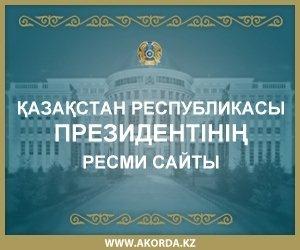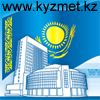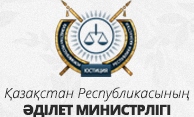The structure of election bodies in the Republic of Kazakhstan and the principles of their formation
Election commissions are the state election bodies that organise the preparation and conduct of elections in the Republic of Kazakhstan. The term of office of election commissions is five years.
The unified system of election commissions is formed by:
- The Central Election Commission of the Republic (hereinafter referred to as the CEC);
- territorial election commissions;
- district election commissions;
- precinct election commissions.
The CEC leads the unified system of election commissions of the Republic and is a permanent body. It is entrusted with the preparation of issues related to the application of disciplinary measures against MPs, the rules of MPs ethics, as well as the termination of the MPs’ powers and deprivation of their powers and parliamentary immunity.
The President of the Republic of Kazakhstan appoints the Chairperson and two members of the CEC for a five-year term. Each chamber of the Parliament independently, without the participation of the other chamber, appoints two CEC members for a five-year term. CEC Deputy Chairman and Secretary are elected at a meeting of the commission.
The CEC has its own administration. The CEC is in charge of subordinate organisations which functions include promoting the organisational activities of territorial election commissions and ensuring, in their electoral activities, the creation, development, implementation, maintenance, administration, operation and system maintenance of information and communication infrastructure facilities, an Internet resource, material-technical support, as well as organisation, coordination and support of work in the field of improving the legal culture of voters, training election organisers and other participants in the electoral process.
Expenses for the CEC and its administration maintenance are covered from the republican budget.
Members of territorial, district and precinct election commissions are elected by the respective maslikhats based on proposals from political parties.
Each political party has the right to submit one candidate to the respective election commission. A political party has the right to nominate candidates who are not members of this political party to the election commission.
In the absence of proposals from political parties within the period established by the maslikhat, the maslikhats elect an election commission at the suggestion of other public associations and higher election commissions.
If necessary, a higher election commission appoints a member of an election commission to a vacant seat until the election of a member of an election commission by the body that forms the composition of the election commission in accordance with the procedure established by the election constitutional act.
Political parties that do not have a representative in the composition of election commissions have the right to delegate their representative with the advisory vote to the relevant election commission for the period of preparation and conduct of the election campaign no later than ten days from the date of calling or announcing the elections.
Main powers of the election bodies of the Republic of Kazakhstan
The Central Election Commission:
·exercises control over the implementation of election legislation on the territory of the Republic; ensures its uniform application; adopts decisions that are binding on the entire territory of the Republic within its competence;
·organises the preparation and conduct of elections of the President and Mazhilis members to the Parliament; directs the organisation and conduct of elections of Senators to the Parliament;
·provides methodological guidance to territorial election commissions and control over the compliance of their activities with the requirements of the electoral legislation when organising and holding elections of maslikhats, akims and members of other local self-government bodies.
Territorial Election Commission:
·exercises control over the implementation of election legislation on the territory of the administrative-territorial unit;
·provides preparation and holding of elections of the President, members of the Parliament and maslikhats, akim, members of other local self-government bodies;
·manages the activities of lower territorial, district and precinct election commissions;
·controls the relevance and reliability of information about voters and the boundaries of polling stations, the timeliness and correctness of voter lists for voting and their presentation for public familiarisation;
·ensures the holding of elections of Senators;
·appoints and organises elections of akims, elections of akims instead of withdrawn ones;
·appoints elections of maslikhat members in constituencies instead of withdrawn ones;
·appoints and organises the election of members of local self-government bodies other than maslikhats, rerun and elections of members instead of withdrawn ones;
·organises an explanation of the legislation on elections; organises and conducts training of participants in the electoral process; conducts workshops with representatives of political parties and other participants in the electoral process on the organisation and conduct of elections
District Election Commission:
·exercises control over the implementation of the electoral legislation on the territory of the respective constituency;
·organises elections of members of the Mazhilis of the Parliament and maslikhats in single-mandate territorial constituencies;
·conducts rerun and elections instead of withdrawn members of the Mazhilis of the Parliament and maslikhats in single-mandate territorial constituencies;
·organises and coordinates the activities of precinct election commissions;
·ensures the transfer of voting results for the electoral district to the higher election commission.
Precinct Election Commission:
·conducts election events at the polling station for the election of the President, members of the Mazhilis of the Parliament, maslikhats, akim and members of other local self-government bodies;
·notifies voters about the location of the precinct commission;
·clarifies the voter list at the relevant polling station;
·familiarises citizens with the voter list, considers applications for errors and inaccuracies in the lists and resolves issues on making appropriate changes to it;
·takes necessary measures to implement the electoral rights of citizens with disabilities;
·notifies voters about the day, time and place of voting;
·prepares the premises, ensures the availability of booths and ballot boxes;
·organises voting at the polling station on election day;
·conducts the vote count and determines the results of voting at the polling station;
·considers applications and complaints on the preparation and organisation of voting and takes decisions on them;
·organises an explanation of the legislation on elections; organises and conducts training of participants in the electoral process; conducts workshops with representatives of political parties and other participants in the electoral process on the organisation and conduct of elections.











